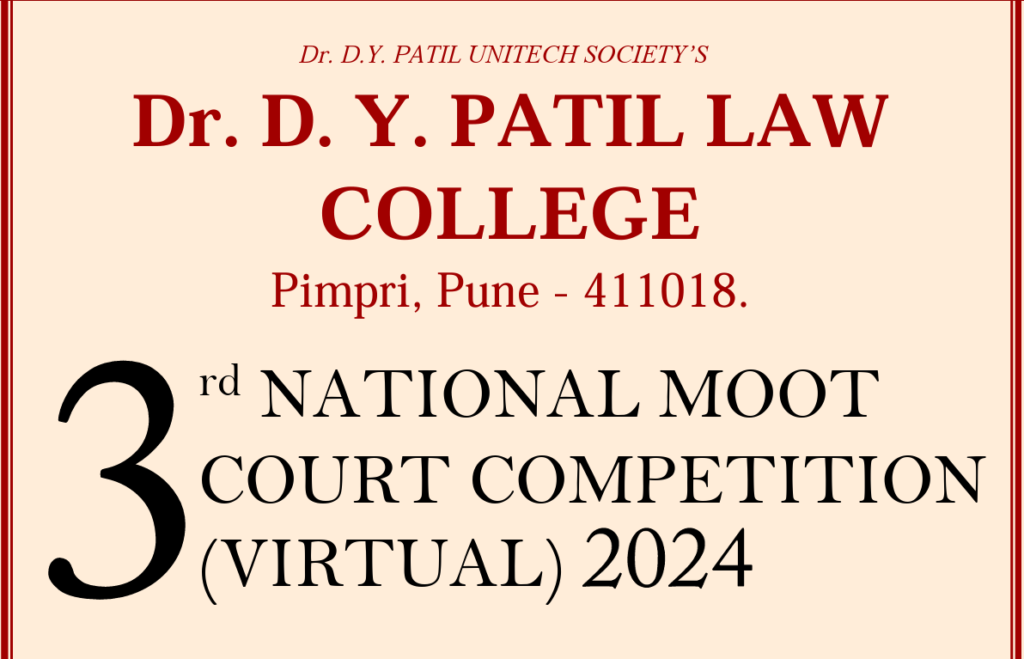Published On: 6th April, 2024
Authored By: Nirmala Bobby Panicker
De Montfort University
Rule of Law:
The rule of law is proclaimed to be one of the fundamental doctrines of the UK constitution. However, despite many interpretations of the phrase, there has never been a precise definition for the Rule of Law. Rule of Law is frequently contrasted with the rule of persons as the law can only rule through persons; this actively demonstrates that the rule of law is opposed to the arbitrary power of persons. Essentially, “rule of law” refers to a set of underlying principles that govern how the legal systems ought to function and how powers are to be exercised.[1]
There are 3 predominant definitions proposed by Judges and academics that could be assertive for s1. Constitutional Reform Act 2005. The 1st one to be acknowledged is the definition/ theory developed by Albert Venn Dicey, which comprises 3 principles. The 1st principle is with regards to the ‘Supremacy of law’. Where no man was punishable except for a distinct breach of the law established in the normal manner before the ordinary courts of the land. This implied the executives had no arbitrary, discretionary, or prerogative powers of restrain. Dicey reckoned ‘There is room for arbitrariness, where there is discretion’[2] In other words, Dicey considered that the rule of law reflected the predominance of regular law as opposed to the influence of arbitrary power.
A case law that complies with this principle is Entick v Carrington[3], In which lord Camden pronounced that “The state may do nothing but that which is expressly authorized by law, while the individual may do anything but that which is forbidden by law”.
The second aspect of Dicey’s conception of the rule of law has the resounding title of ‘equality before the law’. Which signifies; ‘ Every man is subject to the ordinary law of the realm and liable to the jurisdiction of the customary tribunals, whatever his status or rank be.’ As a result, the rule of law applies equally to all officials as it does to any other citizen (Yip Chiu-Cheung[4]). Moreover, this reflects a quote by lord Denning, “Be you ever so high, the law is above you’’.
With regards to this principle, in Gouriet v Union of Post Office Workers and Others[5], it was held that the government and its officials should not have any special exemptions or protections from the law. Furthermore, in M v Home’s [6] office, it was ruled that the executive was not above the law and that the secretary of state was not entitled to claim crown immunity.
Dicey’s 3rd principle of the rule of law concerns ‘The predominance of a legal spirit’. This denotes that the principles of the constitution are the result of judicial decisions determining the rights of private persons in cases brought before the court. This brings out that Dicey was against a basic document setting out a catalog of human rights. However, if state action is authorized by an Act of Parliament, the predominance of legal spirit attenuates. This can be seen through the case of IRC v Rossminster[7] and Burma Oil v Lord Advocate[8].
In 1979, Joseph Raz published The Authority of Law: Essays on Law and Morality, which outlined his philosophy of the rule of law. Raz suggested that there is little purpose in trying to enumerate all the ‘corpus of basic principles and values’. Nonetheless, he went on to outline a few important principles. In brief, they were; All laws should be prospective, open, and clear. It follows that they must not be retrospective. Retrospective legislation is also contrary to Article 7 of the European convention on Human Rights. A case law that brings out this principle is Merkur Island Shipping Corporation v Laughton[9]. Particular laws should be relatively stable and made under open, general rules. In addition, independence of the judiciary must be guaranteed and principles of natural justice must be observed(R v Secretary of State for the Home Department[10]), courts should be easily accessible(R v Lord Chancellor[11]), and discretion of crime preventing agencies should not be allowed to pervert the law.
Lastly, we will consider the theory proposed by Lord Bingham. “All persons and authorities within the state, whether public or private, should be bound by and entitled to the benefit of laws publicly administered in the courts,” he described as the fundamental tenet of the rule of law.
In addition, he had broken down the rule of law into 8 sub-rules, a number of which overlap with the principles identified by Professor Raz. Howbeit, for Lord Bingham, the rule of law also requires that the law provides adequate protection of fundamental human rights as well as compliance by the state with its obligations in international law. Eight sub-rules state that legal rights and liabilities must be settled by applying the law, not by using discretion and that the law must be understandable, accessible, unambiguous, and predictable. Furthermore, laws should apply equally to all, and ministers and public officials must exercise powers in good faith, fairly, and for the purposes for which they were entrusted – rationally and without exceeding the limits of such powers. Additionally, the law must provide adequate protection of fundamental human rights (This particularly avoids the dilemma identified by Professor Raz). Lastly, the state must provide ways to resolve disputes that the parties cannot themselves resolve and the state’s adjudicative procedures should be just. Rule of law requires the state’s compliance with its obligations including both international and national laws.
Judicial responsibility for upholding the rule of law extends to criminal law, where the courts may propose that the police have violated their power to the degree that they should be precluded from bringing a prosecution[12]. (R v Horseferry Road Magistrates’ Court[13])
Essentially, Dicey had a formal theory that enhanced the rights of individuals and protected and promoted freedom of the judiciary. Moreover, it preserves the constitution while preventing arbitrariness. However, his theory failed to distinguish between discretionary and arbitrary powers. Joseph Raz’s theory portrayed essential principles, however, it failed to take into consideration Human rights as part of the Rule of law. Thus, Joseph Raz’s theory is not ideal as a definition of the Rule of Law. On the other hand, Lord Bingham’s theory was eloquently written, while listing out the rules of Rule of Law clearly and prudently. In my opinion, Lord Bingham’s definition of the rule of law is best suited for the reform of the Constitutional Reform Act 2005 as it is a more substantive view and outlines the basic principles of the rule of law in detail while taking into consideration human rights and compliance with international law.
Human Rights in the UK:
Human Rights Act 1998 establishes the fundamental rights and freedoms that all citizens of the United Kingdom are entitled to. The aim was to incorporate the European Convention on Human Rights provisions into UK law. Section 3 of the Human Rights Act 1998 states ‘So far as it is possible to do so, primary legislation and subordinate legislation must be read and given effect in a way which is compatible with the Convention rights.’ This provision has the potential to give the judiciary greater power. The Human Rights Act would hereafter be referred to as HRA and the European Convention on Human Rights as ECHR.
Section 3 HRA imposes an interpretative duty on anyone attempting to apply a Parliamentary Act—predominantly, the courts.[14] Acts of Parliament must be interpreted so that the rights, obligations, powers, and liberties they establish can only be exercised in ways that are compatible with and do not contravene Convention rights. Interpretation under s3 has 3 stages. Firstly, the courts decide what a provision ideally means using the ‘ordinary method’ of interpretation; what the legislature intended when the provision was established. Secondly, the court must determine if the provision infringes any convention rights. Finally, whether it may be construed or applied in a way that is consistent with convention rights. In Ghaiden v Godin-Mendoza[15] the court gave the Rent Act 1977 an interpretation in compliance with ECHR and ruled that s3 is to be interpreted widely, and courts may read in words or adopt a linguistically strained meaning even if there are no ambiguities in legislation, this allowed even if the court must depart from the apparent intention of the legislation. This could arguably conflict with the principle of parliamentary sovereignty.
The requirement in s.3 HRA for courts to reconcile the domestic statute with the Convention right deviates significantly from traditional statutory interpretation rules, as it permits the court to disregard what Parliament intended in order to reconcile the domestic statute with the Convention right. Although it requires the court to ‘interpret’ legislation in a manner that is compatible with the convention, there may occur instances where the statute’s wording is so clear and unambiguous that it cannot be interpreted in any other way than in conflict with a convention right. The court generally issues a ‘declaration of incompatibility’ in such circumstances, defined in S4 HRA(R v Secretary of State for the Home Department [16]). In R v A[17] lord Steyn remarked that ‘declaration of incompatibility is a measure of last resort’.[18]
In R v Offen[19], the courts attempted to interpret legislation in compliance with ECHR by construing s2 of the Crime (Sentences) Act 1977 in accordance with the duty imposed by S3 HRA. Lord Woolf stated: “The legislature’s purpose will be attained since life sentences would be required in cases where the offender poses a significant risk to the public. As a result, s2 of the 1997 Act provides a clear illustration of how the HRA 1998 might strengthen the administration of justice without jeopardizing Parliament’s intent.”[20]
Legislation enacted after the enactment of HRA is subject to interpretive duty. Furthermore, legislation incompatible with Convention rights does not imply that the HRA is repealed. Rather, it is dealt with under the terms of that Act: new legislation is either capable of being interpreted and given effect in a Convention-compatible manner, or it is put into effect as incompatible but nonetheless, legitimate law, continuing the operation or enforcement of the provision in respect of which it is given.
In R v A[21] S3 of the HRA 1998 required the court to interpret s.41 of the Youth Justice and Criminal Evidence Act 1999 in line with Article 6 of the ECHR, and if it does not, a declaration of incompatibility must be issued. The court ruled that S41 (3c) of the 1999 Act must be understood, if appropriate, in light of the interpretative responsibility imposed by s3 HRA and the necessity to protect a complainant from indignity and the possibility of humiliating questioning.
Furthermore, despite its incompatibility with Convention rights, the relevant legislative provision will continue to have force and effect until it is amended. Although the court making the declaration of incompatibility may express an opinion on how the legislation could be amended to make it Convention-compliant, this is unlikely where the incompatibility arises from the interaction of different elements of a statutory scheme, since the court’s role is not to rewrite the legislation.
However, subordinate legislation that cannot be interpreted and is incompatible with ‘fundamental rights’ as recognized by the common law is invalid, independent of the HRA. This is not stated but implied by section 3(2c) HRA. There are, albeit, exceptions. Incompatible subordinate legislation remains valid if the primary legislation under which it is enacted precludes the incompatibility from being removed.
However, the interpretation responsibility only applies ‘so far as it is possible to do so.’ No court, not even the Supreme Court, has the ability to declare an Act of Parliament illegal under s3. Section 3(2)(b) emphasizes that legislation that cannot be understood or implemented in a way that is consistent with Convention rights remains legal and must be enforced by the courts. Parliament retains its ‘sovereignty,’ allowing it to pass legislation that expressly and intentionally permits or requires breaches of Convention rights.[22] This approach to protecting human rights can be compared to the systems in the United States and Germany. In these countries, rights and freedoms are enumerated in a written constitution, and legislative acts can be declared unconstitutional by a constitutional court.
In conclusion, s3 HRA may seem to grant the judiciary more power. However, a careful examination reveals that the judiciary has no such privilege as a higher power. Albeit the court in Ghaiden v Godin-Mendoza[23] was allowed to diverge from the legislation’s apparent intention, recent cases have taken a narrower approach. Moreover, the courts read and interpret legislation to ensure compliance with ECHR and upon not obtaining direct or interpretative compliance to ECHR the court can issue a ‘declaration of incompatibility’. The most significant component, however, is that even if legislation is found incompatible, it remains valid, ensuring and magnifying parliamentary supremacy. Additionally, the statute-made law upholds the doctrine of separation of powers, thus providing checks and balances. In my opinion, if necessary s.3 may be amended or repealed as the UK is no longer part of the European Union and is not required to have statutes in compliance with ECHR. However, it should not be amended or withdrawn in relation to the judiciary having greater power as the judiciary is not privileged with any special or greater powers.
Bibliography
Primary Sources
Table of Cases
Burma Oil Company v Lord Advocate [1965] AC 75.
Entick v Carrington [1765] EWHC KB J98.
Ghaidan v Godin-Mendoza [2002] EWCA Civ 1533; [2004] UKHL 30.
Gouriet v Union of Post Office Workers and others [1977] 3 All ER 70; [1978] AC 435.
Merkur Island Corp v Laughton [1983] 2 AC 570.
M v Home Office and another [1994] 1 AC 377.
R (Anderson) v Secretary of State for the Home Department [2002] UKHL 46; [2002] 4 All ER 1089.
R v A (No.2) [2001] UKHL 25; [2002] 1 AC 45.
R v Horseferry Road Magistrates Court, ex p. Bennett (No. 1) [1993] UKHL 10.
R v Inland Revenue Commissioners, ex p. Rossminster Ltd [1979] UKHL 5.
R v Lord Chancellor [2016] UKSC 39.
R v Offen and Others (No 1) [2000] EWCA Crim 96.
R v Secretary of State for the Home Department, Ex Parte Pierson (1997) 3 WLR 492.
Yip-Chiu-Cheung v The Queen (1994) 2 All E.R. 924.
Table of Statutes
Constitutional Reform Act 2005
Crime (Sentences) Act 1977
European Convention on Human Rights 1950
Human Rights Act 1998
Rent Act 1977
Youth Justice and Criminal Evidence Act 1999
Secondary Sources
Books
Dicey A.V, ‘Introduction to the study of the law of constitution’ (1959).
Taylor C, Law Express: ‘Constitutional and Administrative Law’, (4th ed, Pearson 2014).
Davis H, Human Rights Law Directions (5th ed, OUP 2021).
Parpworth N, ‘Constitutional and Administrative Law’ (11th ed, OUP 2020).
[1] Chris Taylor, Law Express: ‘Constitutional and Administrative Law’, (4th ed, Pearson 2014).
[2] A.V. Dicey, ‘Introduction to the study of the law of constitution’ (1959).
[3]Entick v Carrington [1765] EWHC KB J98.
[4] Yip-Chiu-Cheung v The Queen (1994) 2 All E.R. 924.
[5] Gouriet v Union of Post Office Workers and others [1977] 3 All ER 70; [1978] AC 435.
[6] M v Home Office and another [1994] 1 AC 377.
[7] R v Inland Revenue Commissioners, ex p. Rossminster Ltd [1979] UKHL 5.
[8] Burma Oil Company v Lord Advocate [1965] AC 75.
[9] Merkur Island Corp v Laughton [1983] 2 AC 570.
[10] R v Secretary of State for the Home Department, Ex Parte Pierson (1997) 3 WLR 492.
[11] R v Lord Chancellor [2016] UKSC 39.
[12] Neil Parpworth, ‘Constitutional and Administrative Law’ (11th ed, OUP 2020).
[13] R v Horseferry Road Magistrates Court, ex p. Bennett (No. 1) [1993] UKHL 10.
[14] Howard Davis, Human Rights Law Directions (5th ed, OUP 2021).
[15] Ghaidan v Godin-Mendoza [2002] EWCA Civ 1533; [2004] UKHL 30.
[16] R (Anderson) v Secretary of State for the Home Department [2002] UKHL 46; [2002] 4 All ER 1089.
[17] R v A (No.2) [2001] UKHL 25; [2002] 1 AC 45.
[18] Neil Parpworth, ‘Constitutional and Administrative Law’ (11th ed, OUP 2020).
[19] R v Offen and Others (No 1) [2000] EWCA Crim 96.
[20] R v Offen and Others (No 1) [2000] EWCA Crim 96.
[21] R v A (No.2) [2001] UKHL 25; [2002] 1 AC 45.
[22] Howard Davis, Human Rights Law Directions (5th ed, OUP 2021).
[23] Ghaidan v Godin-Mendoza [2002] EWCA Civ 1533; [2004] UKHL 30.




